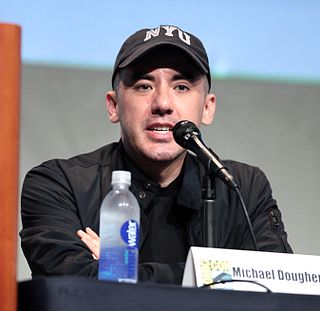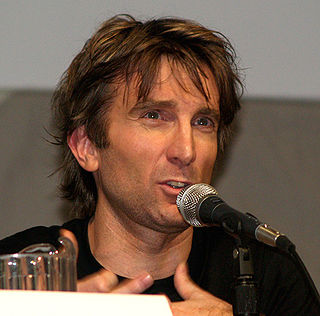A Quote by Megan Smith
The things you're passionate about and interested in, get experience with them by going deep on projects. I would encourage science projects, plays. Pursue science, math, writing, history - the 21st century demands a lot of cross-disciplinary thinking.
Related Quotes
It's a mistake to get too narrow too fast. Kids today, many of them will live past 100, and you cant predict what you might work on. The things you're passionate about and interested in, get experience with them by going deep on projects. I would encourage science projects, plays. Pursue science, math, writing, history - the 21st century demands a lot of cross-disciplinary thinking.
It is time to create new social science departments that reflect the breadth and complexity of the problems we face as well as the novelty of 21st-century science. These would include departments of biosocial science, network science, neuroeconomics, behavioral genetics and computational social science.
Literary science fiction is a very, very narrow band of the publishing business. I love science fiction in more of a pop-culture sense. And by the way, the line between science fiction and reality has blurred a lot in my life doing deep ocean expeditions and working on actual space projects and so on. So I tend to be more fascinated by the reality of the science-fiction world in which we live.
I would teach how science works as much as I would teach what science knows. I would assert (given that essentially, everyone will learn to read) that science literacy is the most important kind of literacy they can take into the 21st century. I would undervalue grades based on knowing things and find ways to reward curiosity. In the end, it's the people who are curious who change the world.
I have begun to feel that there is a tendency in 20th Century science to forget that there will be a 21st Century science, and indeed a 30th Century science, from which vantage points our knowledge of the universe may appear quite different than it does to us. We suffer, perhaps, from temporal provincialism, a form of arrogance that has always irritated posterity.
When biblical material touches on the natural world, we can legitimately use the tools of science. Sometimes that shows us - no shock here - that biblical writers didn't know as much as we now know about the natural world - but God knew that when he picked them, so that alone tells us that "doing science" that would satisfy a 21st century - and beyond - audience wasn't what God was interested in with respect to the enterprise of producing Scripture for posterity.
I'm not interested in going to casting after casting, trying to get into that game. So there is a part of me that knows that I will do more characters, even if I have to produce those projects myself to get those projects out there. If the right characters come along, I would love to. I would jump at the chance.



































